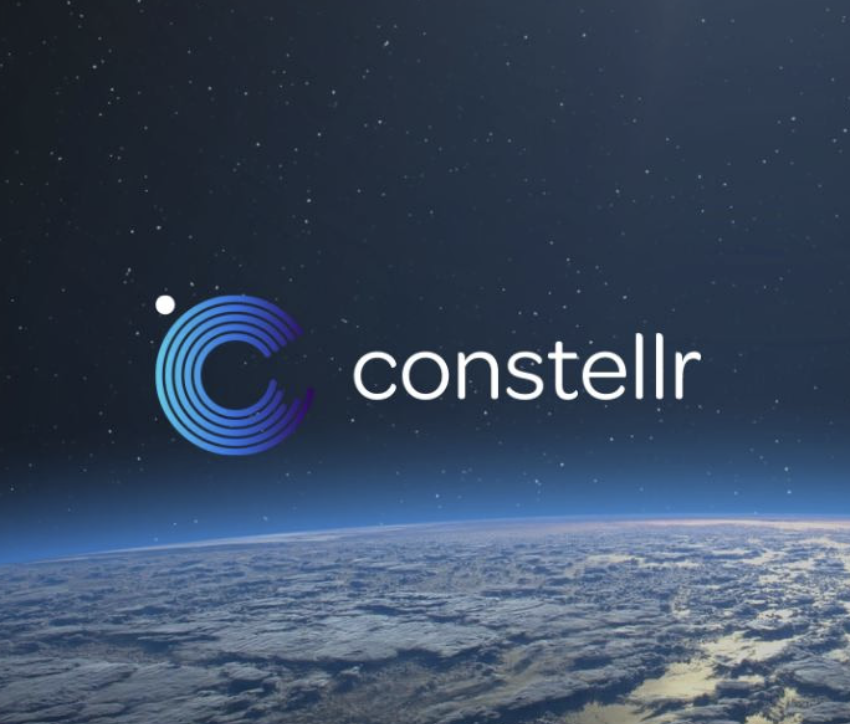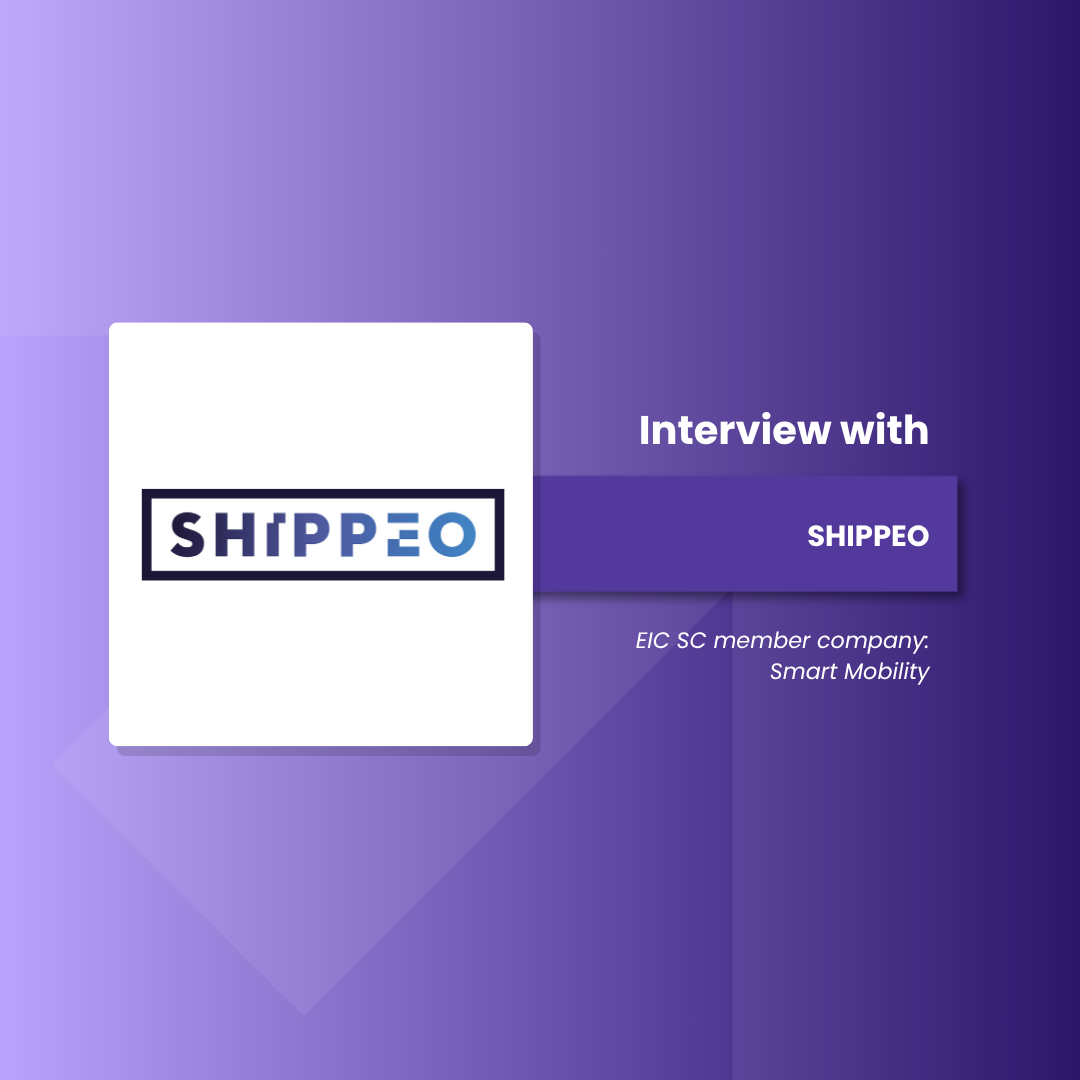17 Feb 2026
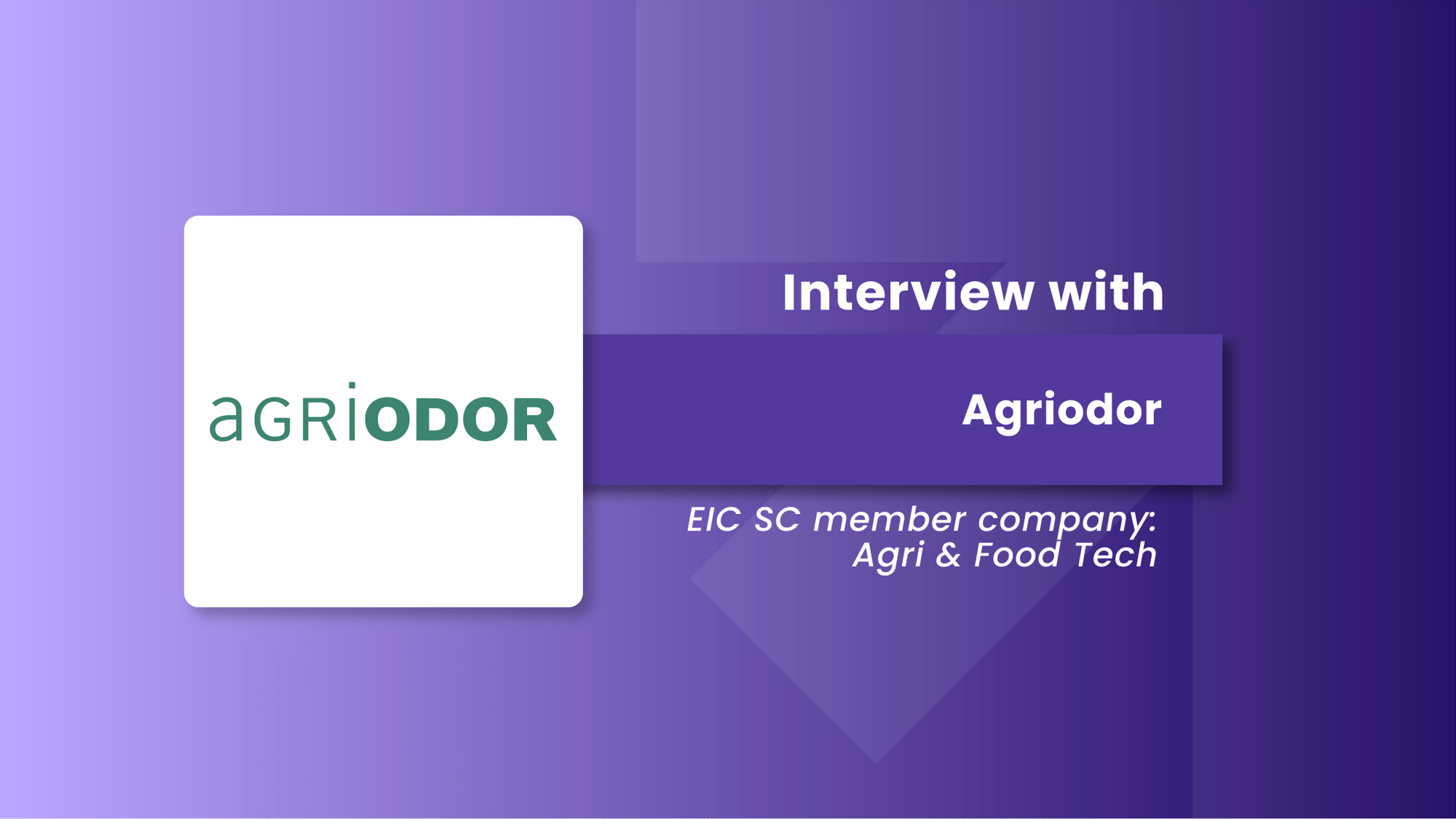
Agriodor is a French deep tech scale-up developing innovative, nature-inspired alternatives to pesticides. Based in Rennes, France, the company creates customized blends of natural compounds that repel insect pests from crop fields while preserving biodiversity and human health.
We caught up with Olivier Le Port, CFO of Agriodor, at the Scale100 Forum in October to learn about his team and their revolutionary approach to crop protection, as well as the achievements and challenges of the company.
You can also listen to the interview recording here (or watch the video below):
Biomimicry-driven pest control
What makes Agriodor's approach unique is their use of biomimicry to identify the right volatile organic compouds (VOCs) for their formulations. These custom blends are then diffused through specially designed matrices placed in fields, releasing compounds at precise moments to effectively repel targeted pests.
"Our solution is what sets us apart from competition – our secret sauce," explains Olivier. "It's a blend that permits us to repel insect pests outside of the field."
The technology is already showing remarkable promise. Agriodor has recently patented a solution that will be deployed in sugar beet fields in 2025 to combat Myzus persicae, a major pest affecting this crop. This breakthrough offers farmers a viable alternative to neonicotinoids, which have been banned across France and Europe due to their harmful environmental impacts.
"There is a huge, urgent need for new solutions, and our technology is very promising. Our approach can potentially impact 80% of the insect pests in the world."
The timing couldn't be better. Insect pests are becoming increasingly problematic due to climate change and growing resistance to conventional pesticides – similar to how humans develop resistance to antibiotics through overuse.
A team blending scientific expertise with business acumen
Agriodor was founded in 2019 by Alain Thibault and Ené Leppik, who quickly brought on additional leadership to round out the company's expertise.
Alain Thibault brings serial entrepreneurship experience, having led multiple startups and major companies and invested in numerous ventures. Ene Leppik contributes deep scientific knowledge with a PhD in chemical ecology, specializing in insect-plant relationships and how odors mediate these interactions. Her significant research success with the fava bean weevil led her to explore commercial applications of her work.
Recognizing the agricultural industry's potential, the founders recruited Camille Delpoux, who brings 15 years of experience developing innovative agricultural solutions. As head of marketing, sales, and field development, she works closely with the R&D team to ensure their solutions address real market needs.
Olivier himself joined 18 months ago with a background in consulting, finance, and scaling agritech operations.
Key milestones and future outlook
When asked about Agriodor's achievements, Olivier highlights two significant milestones.
"First is the success we've had in raising funds. Many investors trust our management team, our technology, our vision of the market, and our capacity to develop solutions that match business needs."
Their second major achievement is more concrete: "We've designed and implemented a solution that will be in sugar beet fields in 2025, with a distribution deal signed recently. Sugar beet is a very significant crop, and we're very proud of this accomplishment."
Navigating regulatory challenges
Despite promising technology, Agriodor faces two significant challenges. The first involves changing market perceptions and adoption rates. "Agriculture is quite a slow market to adopt changes," Olivier explains.
"We need to convince not only farmers but also technical institutes, cooperatives, distributors, chambers of agriculture – many stakeholders."
The second and more formidable challenge concerns regulation. Despite using natural molecules already found in food, cosmetics, and even children's sweets, Agriodor faces a lengthy path to market in Europe. "Under current European regulations, we need 10 years to go to market," and Olivier points to the lack of a definition of biocontrol, which means innovators like Agriodor have to follow pesticide regulations.
This regulatory hurdle stands in stark contrast to markets like the United States and Brazil, where fast-track processes for biocontrol technologies can bring products to market in just three years.
"In figures, once our solution is ready – which takes approximately three years in R&D – it takes 10 years to reach the market in Europe, versus three years in the US and Brazil," Olivier explains. As a result, the US and Brazilian markets are a priority for Agriodor, though they are in active discussion with European regulators for much-needed changes locally.
Joining the EIC Scaling Club
Olivier sees the EIC Scaling Club as a significant opportunity for Agriodor's growth journey.
"It's an opportunity to meet mentors, get sound business advisory, meet investors, and connect with peers.”
The peer networking aspect has proven particularly valuable. "Even if they're not in the agritech sector, they've got insights and useful tips. We get ideas about how to adapt our tactics and strategy to be faster – and time is critical for a deep tech company."
Watch the full interview with Olivier Le Port below, or visit our YouTube channel to explore our other videos:
About the EIC Scaling Club
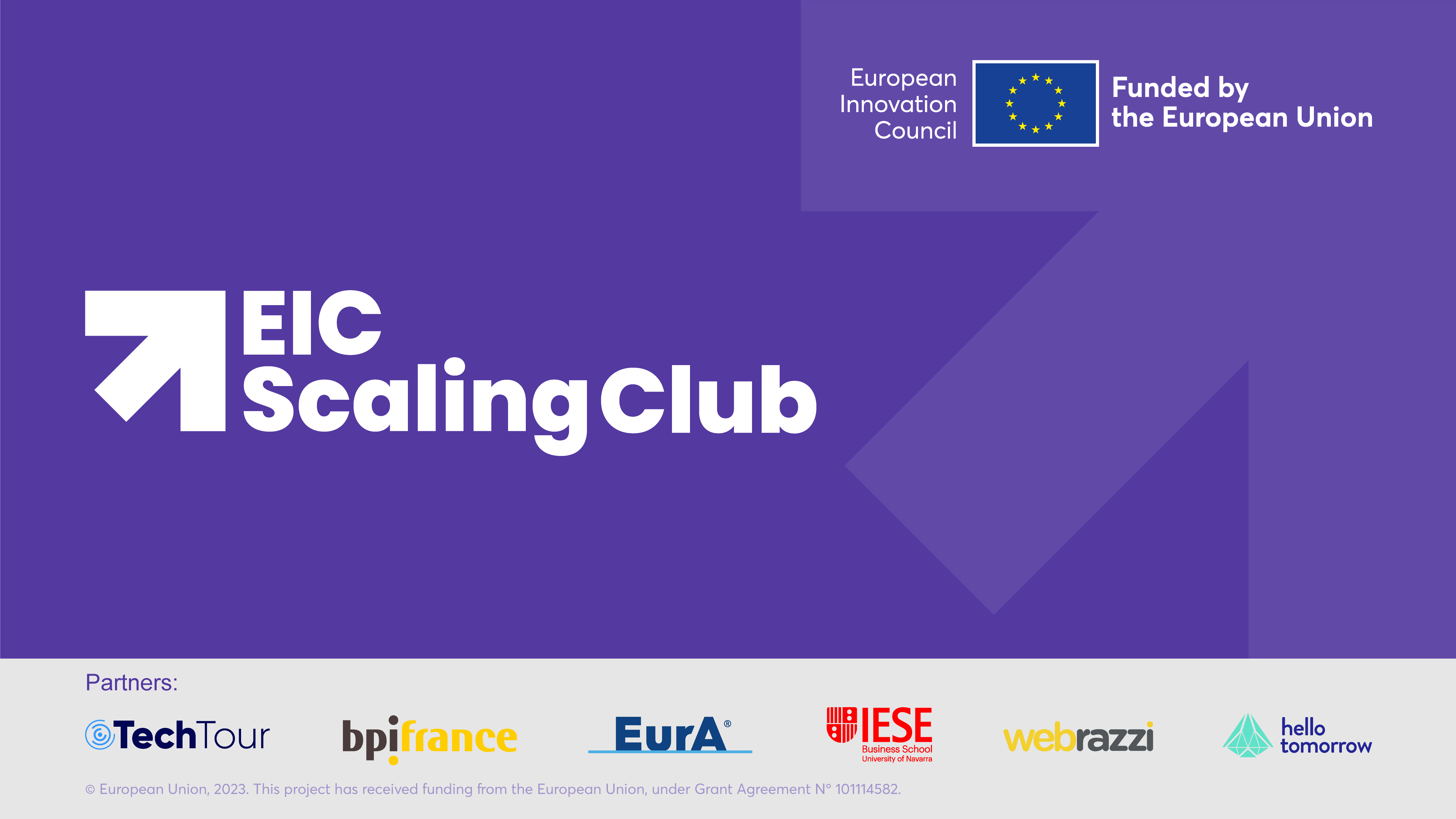
The EIC Scaling Club is a curated community where 120+ European deep tech scale-ups with the potential to build world-class businesses and solve major global challenges come together with investors, corporate innovators and other industry stakeholders to spur growth.
The top 120+ European deep tech companies will be carefully selected from a pool of high-growth scale-ups that have benefitted from EIC financial schemes, other European and national innovation programmes, and beyond.
The EIC Scaling Club is an EIC-funded initiative run in partnership by Tech Tour, Bpifrance (EuroQuity), Hello Tomorrow, Tech.eu (Webrazzi), EurA and IESE Business School.
Subscribe to our newsletter here to stay up-to-date!
Related Articles
Recent Articles
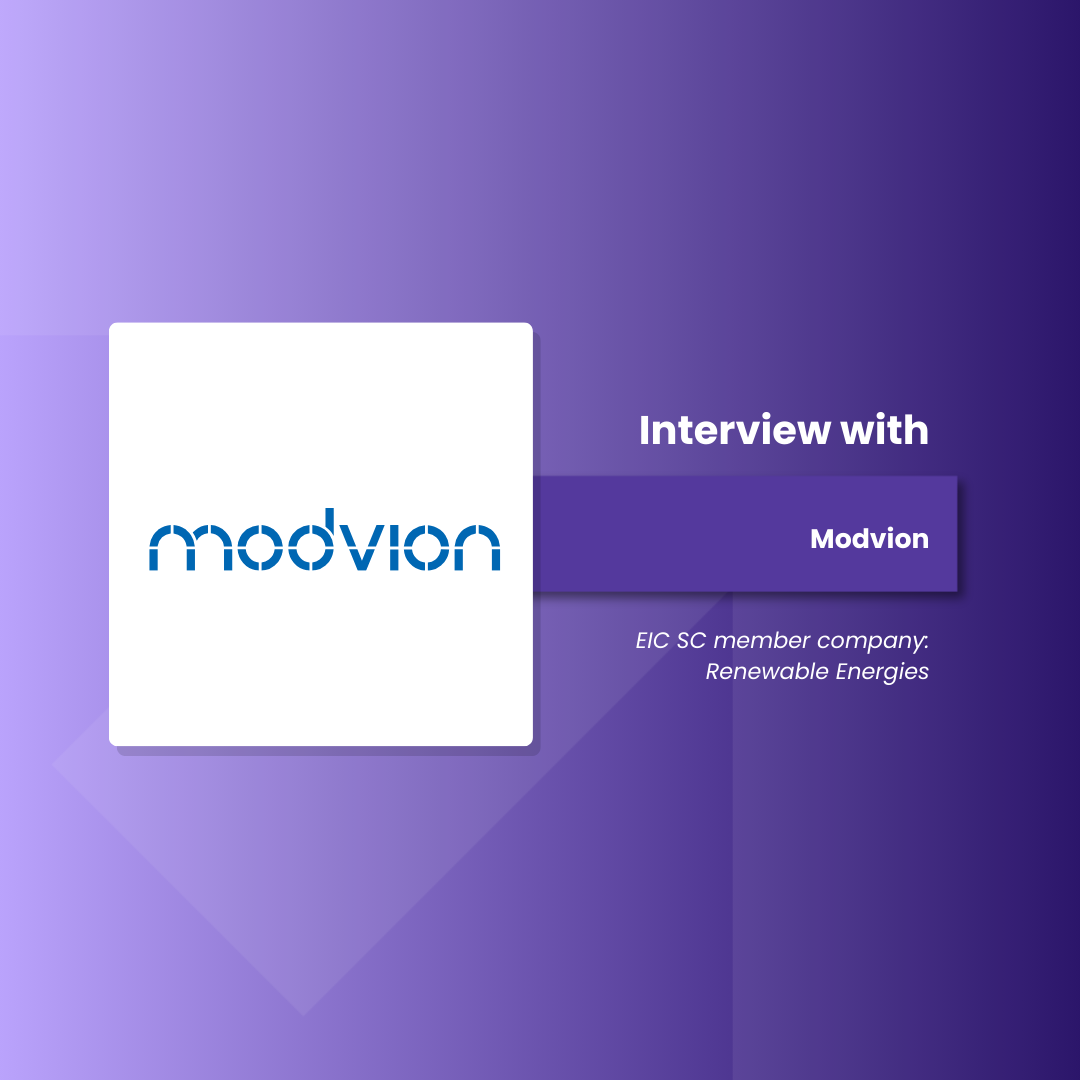
Modvion: Reaching new heights with wooden wind towers
2 Feb 2026


